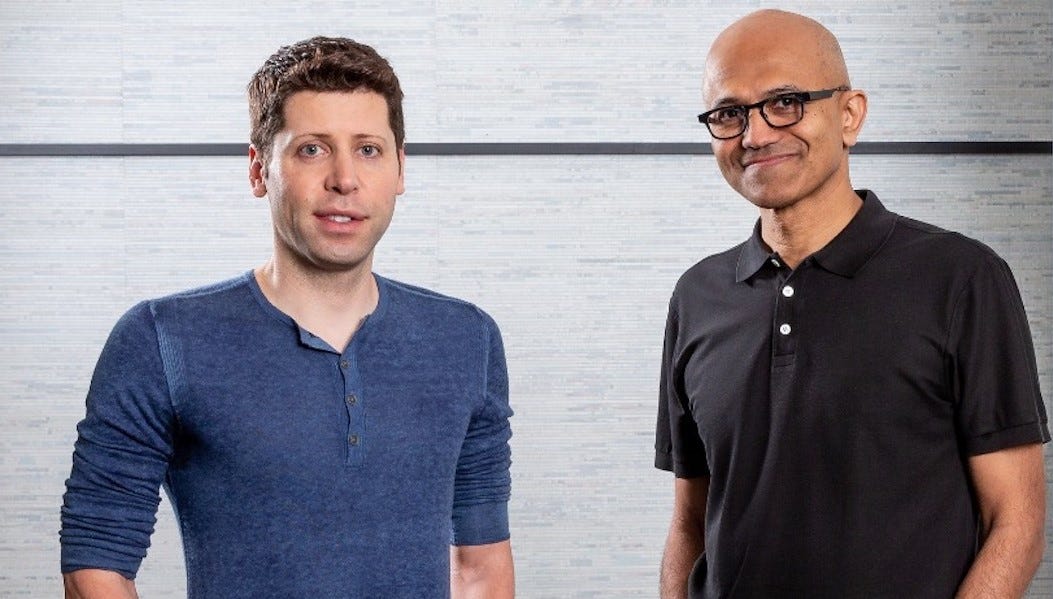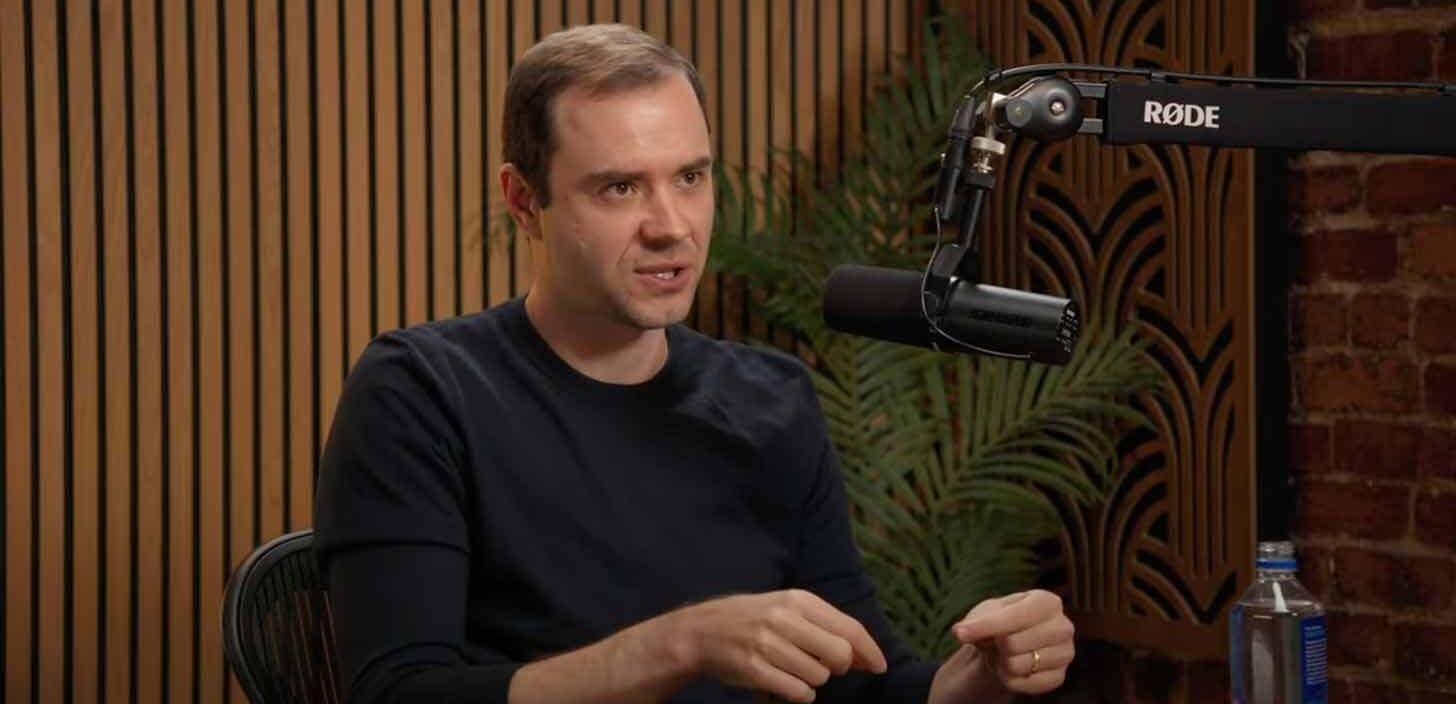🧠 OpenAI Changes Its Skin to Lead the Next Decade of AI
⚙️ After months of internal tensions and a complex legal process, Altman’s company adopts a hybrid structure that blends its philanthropic mission with an ambitious, market-oriented business strategy
🤝 Microsoft strengthens its influence with a 27% stake, while OpenAI creates a foundation endowed with $25 billion to ensure an ethical, safe, and scientifically valuable development of artificial intelligence.
This issue of Transparent Algorithm #109 is also available in Catalan, English, French, and Italian.
October 2025 has confirmed what many analysts had already anticipated: artificial intelligence is not only transforming the way we access information but also reshaping the business models of the companies driving it. OpenAI, creator of ChatGPT, has completed a major internal restructuring and signed a new strategic agreement with Microsoft. The move marks a decisive step toward consolidating its position as the world’s leading AI player while redefining its role between scientific research and commercial profitability.
⚙️ A New Structure to Balance Business and Ethics
After a year of internal disputes, legal battles, and quiet negotiations with investors and regulators, the company led by Sam Altman has unveiled a new corporate framework.
Its non-profit branch becomes the OpenAI Foundation, while its commercial division is now OpenAI Group PBC (Public Benefit Corporation) — a U.S. legal structure that combines profit-making goals with a social or ethical mission. This model allows OpenAI to retain some philanthropic control over a structure clearly geared toward the market.
According to board chairman Bret Taylor, the foundation will retain 26% of the group’s equity, valued at around $130 billion. Microsoft will hold 27%, equivalent to $135 billion, while the remaining 47% will go to investors, employees, and former staff. “OpenAI will be one of the best-funded philanthropic organizations in history,” said Taylor.
The OpenAI Foundation will invest $25 billion in two key areas: developing technical solutions that make AI safer and more resilient, and funding applications for health and biomedical research. The goal, according to Altman, is to ensure that technological progress translates into a positive social impact — a direct response to criticism over the lack of ethical oversight in AI development.
This new stage follows a lengthy legal validation process in California and Delaware. Company insiders admit that without this restructuring, OpenAI could have lost up to $10 billion in investment pledged by SoftBank. The reorganization will also allow the company to raise funds more transparently and operate with the flexibility of a major tech corporation, without abandoning its non-profit roots.
🤝 Microsoft and OpenAI: A Strategic Interdependence
Microsoft’s role is central in this new phase. The Redmond-based company, which invested billions in OpenAI back in 2019, now solidifies its strategic position. Under the new structure, Microsoft can continue developing its own artificial general intelligence (AGI) research independently or with partners, while retaining intellectual property rights over OpenAI’s models until 2032. In return, OpenAI can work with new partners and release models with open weights, provided they meet strict safety standards.
The agreement redefines the relationship between the two companies: more freedom for both sides, but also deeper interdependence. Microsoft will continue integrating ChatGPT and GPT models into its Azure ecosystem, while OpenAI will keep benefiting from Microsoft’s computing infrastructure and financial strength.
This outlines a new kind of technological symbiosis: a startup that becomes the cornerstone of a giant, and a giant that depends on its startup to remain relevant.
The launch of the intelligent browser ChatGPT Atlas marks a turning point in digital experience: it combines search, conversation, and productivity within a single environment — and represents the biggest challenge to Google in two decades.
Atlas reimagines how users navigate the web: instead of typing queries and opening links, they hold a dialogue with the AI, which delivers contextualized answers and concise summaries. With Atlas, OpenAI is betting on a conversational web, where natural language replaces traditional search engines.
However, Atlas’s debut has not been free of controversy. Cybersecurity experts have shown that the system is vulnerable to so-called “prompt injections” — malicious instructions hidden within web pages that can manipulate the browser’s behavior.
OpenAI has acknowledged the issue and says it is working on a fix, though external specialists warn that it reflects a structural weakness of large language models.
In parallel, OpenAI is increasing its investment in applied research. Supported by its new foundation, the company plans to fund scientific AI projects in fields such as biomedicine, computational physics, and climate science. The goal is to develop systems capable of “assisting science” — that is, taking part in discovery itself, not just in data interpretation. This approach is inspired by Anthropic’s Claude Life Sciences model, already established as a digital assistant for labs and research teams.
Meanwhile, Andrej Karpathy, OpenAI co-founder and former head of AI at Tesla, has issued a sobering warning. The engineer argues that “the year of AI agents has not yet arrived” and calls for a more realistic view of technological progress. According to Karpathy, the industry “pretends everything is amazing when there’s still a long way to go.” His remarks, from one of the most respected voices in the field, serve as an internal reminder: less marketing, more research.




Microsoft's 2032 IP rights lock is the most underrated part of this whole deal. They get to keep profiting from every OpenAI model breakthrough through Azure while OpenAI gets the flexibility to experiment with open weights and new partenrs. The Atlas browser launch timing is strategic too, hitting Google right when they're vulnerable to regulatory pressure. The $25B foundation endowment is solid but the real power stays with Microsoft's infrastructure control.